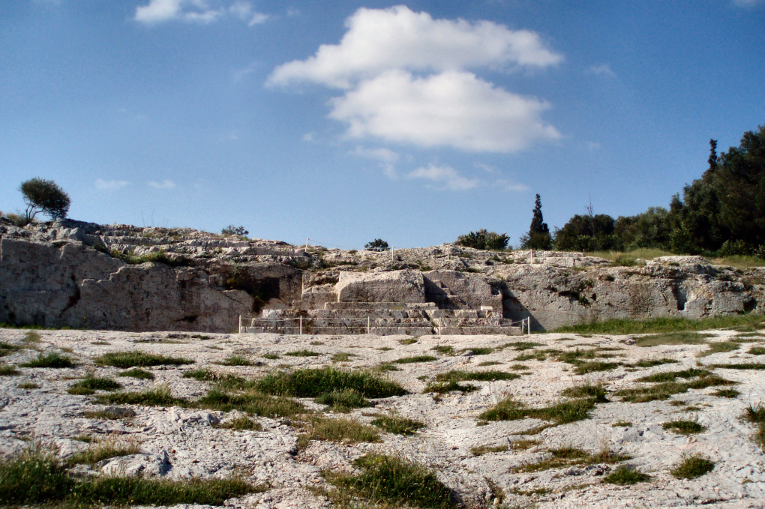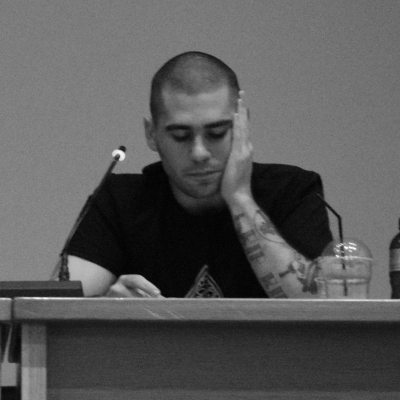Without action, all pleasure, all feeling, all knowledge is nothing but a postponed death.~Jakob Michael Reinhold Lenz[1]
The conditions of oligarchy (rule by the few) not only does not provide the spatial dimensions for people to practice politics and influence public affairs, but they also actively resist mass political involvement – what French philosopher Jacques Ranciere has termed Hatred of Democracy. In one such institutional setting, one can act only as an atomized individual, and not as a citizen that is actively and passionately involved in the collective management of society. And since our societies are structured around exclusively oligarchic lines – i.e. national-statist and capitalist ones – it is no wonder that there has been a diachronic retreat to various kinds of esoteric individualisms.
This trend is especially evident in times of crisis.[2] In conditions of war or economic hardship people are pressed by worsening living conditions, but the political architecture of their oligarchic societies does not provide them with the means of developing a collective response to the problem in hand. They can (and often do) seek collective solutions from outside the system, but the mainstream approach, heavily promoted by various systemic actors, is directed towards “everyone-for-himself” attitudes. A characteristic motto of this atomized worldview can be found in the following lines by Samuel Smiles, the 19th century ‘founding father’ of the self-help genre: Heaven helps those who help themselves.
Philosopher Isaiah Berlin traces the emergence of similar type of thinking back in Ancient Greece too, when Alexander the Great began to destroy the city-states, and the Stoics and the Epicureans began to preach a new morality of personal salvation, which took the form of saying that politics was unimportant, civil life was unimportant.[3]
Oligarchies tend to inspire acquiescence with one’s lot, insisting that there is nothing that can be done in the social realm. Thus, an exclusively individualistic perception of freedom is encouraged. A type of mindset that is very well defined by Isiah Berlin in the following passage: If you cannot obtain from the world that which you really desire, you must teach yourself not to want it. If you cannot get what you want, you must teach yourself to want what you can get.[4]
Freedom becomes an individual affair, something that must be attained by each and every one on his or her own. Becoming free is detached from political deliberation, and instead is equated with submission and passivity. This is arguably the mindset of every type of heteronomous society. Such is the case, for example, with religions such as Christianity, which discover, as Hannah Arendt suggests, in free will a non-political freedom, which could be experience in intercourse with oneself, and was therefore not dependent upon intercourse with the many[5].
This understanding of freedom as a passive and atomized affair, one can argue, is a logical product of the oligarchic restriction of decision-making in the hands of narrow elites. But the very idea that one can be free in his “inner world”, while he reminds unfree in the social realm, is grossly fallacious. Freedom certainly implies the development of individual consciousness, unburdened by heteronomous dogmas and illusions, but it also prompts radical decentralization of power and universal equality. And since the latter two are deeply political values, profound thinkers like Arendt have suggested that there is no actual freedom without politics; It simply could not exist[6].
Being free, thus, must be understood as being politically active. It means that one has the possibility to participate in the creation and alteration of the rules and norms that frame our life in common. And of course, such a political participation cannot take place within an oligarchy, since the latter’s main feature is depoliticizing the great majority. Instead, it can only be realized in a directly democratic project, based on certain spatiality that allows for the exercise of genuine participatory politics.
It is in this line of thought that Arendt suggests that political freedom begins only in action, […] [it] is not ‘inner freedom’; it cannot hide inside a person. It is dependent on a free people to grant it the space in which actions can appear, be seen, and be effective[7]. In a similar fashion, another important thinker, Cornelius Castoriadis insists that true politics, to the extent that these have ever existed, belong to praxis.[8]
No matter how much yoga one does, or how much self-help literature one reads, these can’t really help one get hold of his or her destiny. At most, they can get her acquiescent with her position, but not altering it. The same holds truth for the freedoms offered by economically centered systems such as capitalism. The latter suggests that it provides an economic freedom, i.e. being free to consume. And while one can select among various products on a given shelf, without a proper political freedom, one cannot challenge the short-term profit motive, economic growth doctrine, atomizing consumerism, and all the other features of our modern system. Thus, it cannot really be called freedom at all.
Being free must be understood then, as being politically active in a specific type of democratic institutional setting. For Arendt, human freedom is not merely a matter of metaphysics; it is a matter of fact, as are the automatic processes within and against which it always asserts itself[9]. Because of this she suggests that without a politically guaranteed public realm, freedom lacks the worldly space to make its appearance[10].
There is a direct link between political action and the creation of suitable institutions. To act, one can suggest, means to take active part in the instituting processes of society. It is only then that freedom can be asserted. But it also implies that radical equality between the participants is being instituted, since the action of each and every person holds the same weight. In this line of thought Arendt underlines that:
In action, beginning and performance merge into each other, and, when applied to politics, this means that the person who takes the initiative and thus starts to lead must always move among those who join in to help him as his peers, and neither as a leader among his servants nor as a master among his apprentices or disciples. This is what Herodotus mean when he said that to be free was neither to rule nor to be ruled, and that therefore men could only be free in ισονομία, as democracy was originally called, in being among one’s equal.[11]
Thus, the political architecture of freedom consists not only in the protection and security of the individual, but also his active engagement in the decision-making and instituting processes that frame the rules and norms of our life in common. In one such framework, the equality of the citizens, Castoriadis writes, is not only the passive equality before the law, as promoted by the proponents of liberalism, but also the active general participation in public affairs.[12]
There are suitable institutions that have emerged in multiple historic moments, such as in Ancient Athens, Paris Commune, the Spanish Civil War, the Hungarian Revolution, etc., that are based on and can further nurture political action. I refer here to institutional forms like general assemblies and popular councils that give space for broad public deliberation. Castoriadis describes this setting in the following manner:
Participation materializes in the ekklesia, in the Assembly of the people, which is the acting sovereign body. All citizens have the right to speak (isegoria), their votes carry the same weight (isopsephia), and they are under a moral obligation to speak their minds (parrhesia). Participation also materializes in the courts. There are no professional judges; virtually all courts are juries with their jurors chosen by lot.[13]
In one such direct democratic system there are no ready blueprints or premade solutions, but only the space for political action. But it is through action, individual as well as collective, that everyone in society can be free. Freedom is not the absence of restraints, something that could potentially lead to excessive behaviors and imposition of the stronger over the weaker, but the possibility of each and every member of society to equally participate in the management of their life in common.
Such freedom is not given, and neither is attainable on our own. It requires collective and coordinated acts. It is social creation that requires passion, as well as patience. All the modern short-cuts (such as self-help, esotericism etc.) are tools that can give us an illusion of being free in an unfree world. Actual freedom is nothing short of genuinely democratic action.
[1] Isaiah Berlin: The Roots of Romanticism (Oxford; Princeton University Press, 2013), p64.
[2] https://link.medium.com/TY1mgaW52ob
[3] Isaiah Berlin: The Roots of Romanticism (Oxford; Princeton University Press, 2013), p44.
[4] Ibid.
[5] Hannah Arendt: The Freedom to be Free (New York: Penguin Books, 2020), pp51-52.
[6] Hannah Arendt: The Freedom to be Free (New York: Penguin Books, 2020), p45.
[7] Hannah Arendt: The Freedom to be Free (New York: Penguin Books, 2020), p59.
[8] David Ames Curtis (ed.): The Castoriadis Reader (Oxford: Blackwell, 1997), p150.
[9] Hannah Arendt: The Freedom to be Free (New York: Penguin Books, 2020), p72.
[10] Hannah Arendt: The Freedom to be Free (New York: Penguin Books, 2020), p34.
[11] Hannah Arendt: The Freedom to be Free (New York: Penguin Books, 2020), p74.
[12] David Ames Curtis (ed.): The Castoriadis Reader (Oxford: Blackwell, 1997), p275.
[13] David Ames Curtis (ed.): The Castoriadis Reader (Oxford: Blackwell, 1997), p276.
Source: Medium
Teaser photo credit: The ekklesia in Athens convened on a hill called the Pnyx. No author information. CC BY-SA 3.0, https://commons.wikimedia.org/w/index.php?curid=701621






